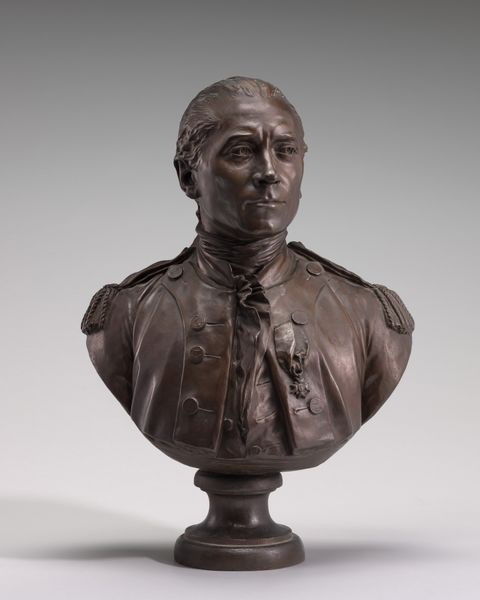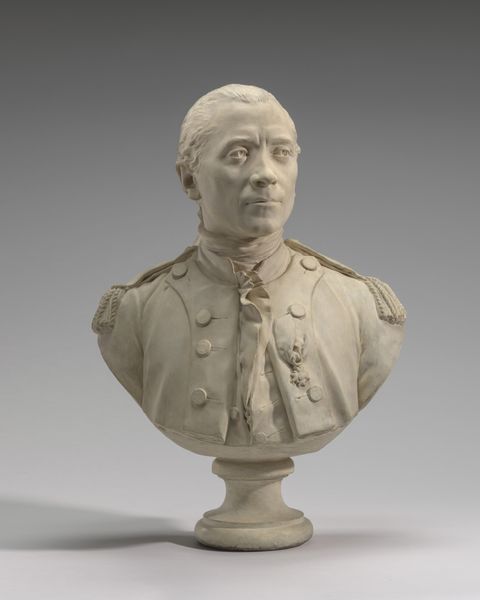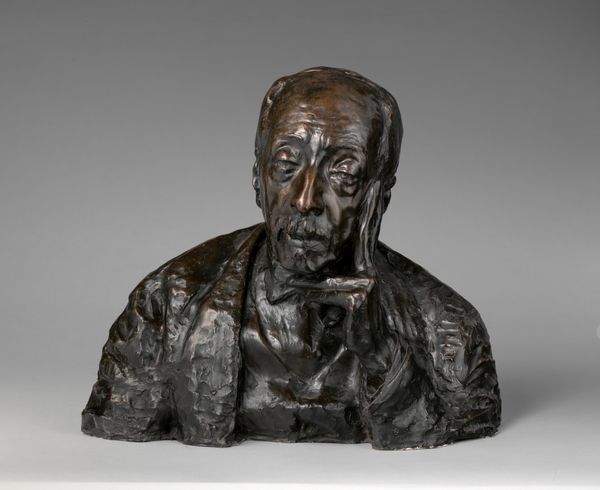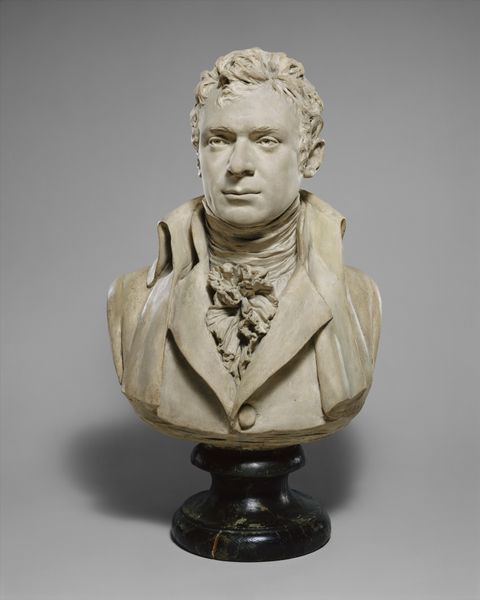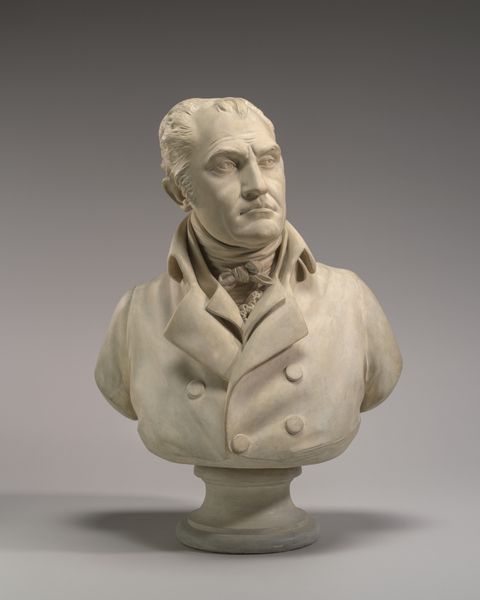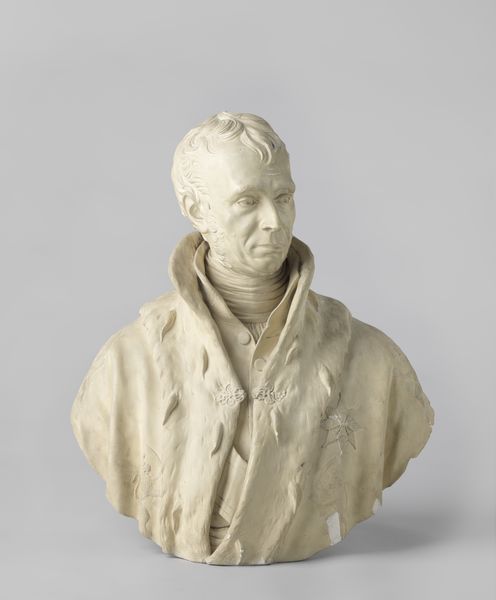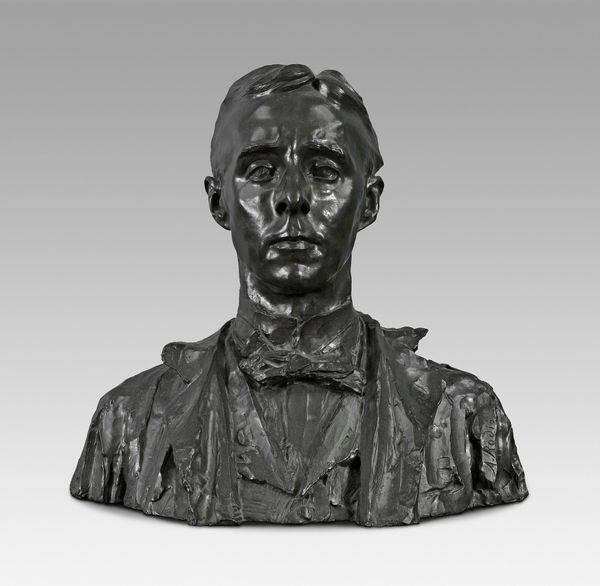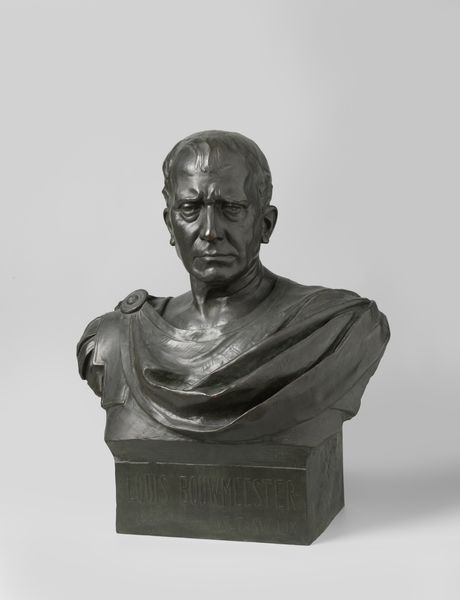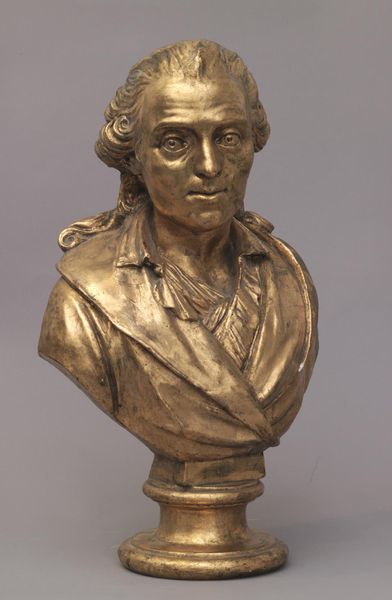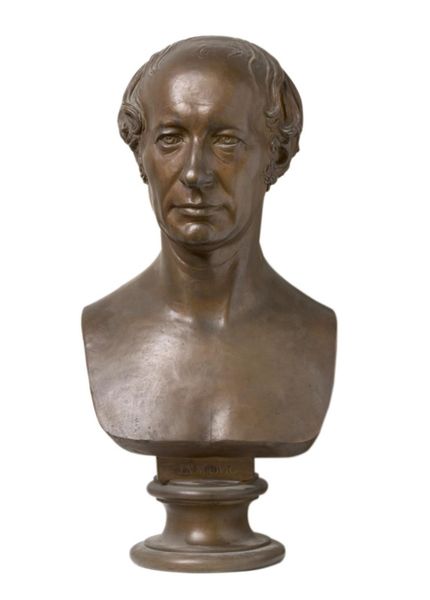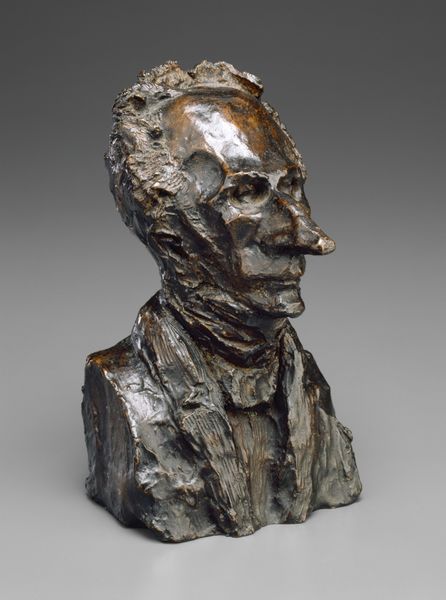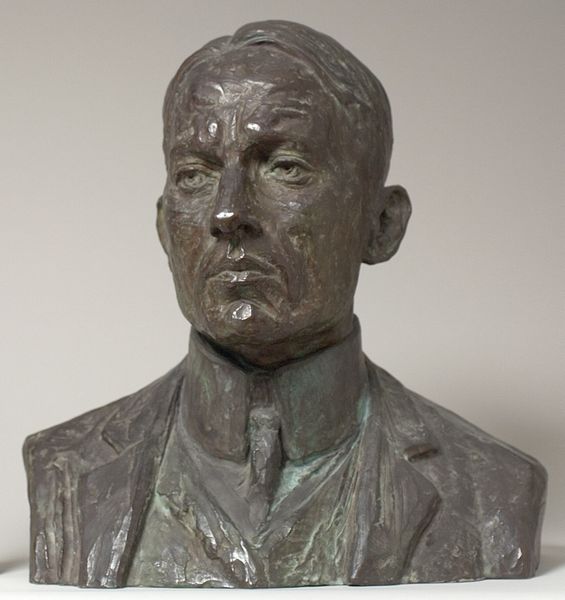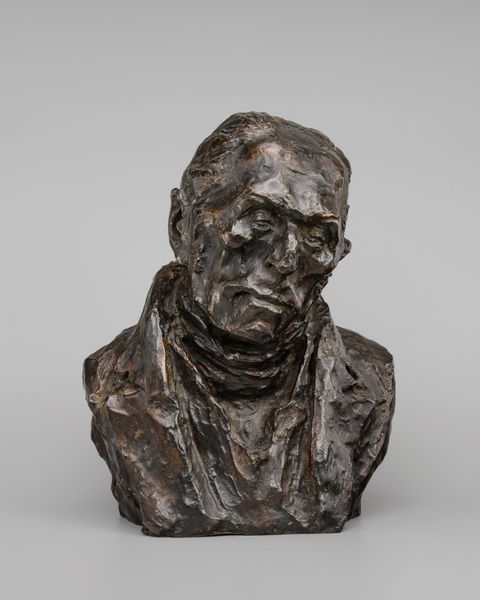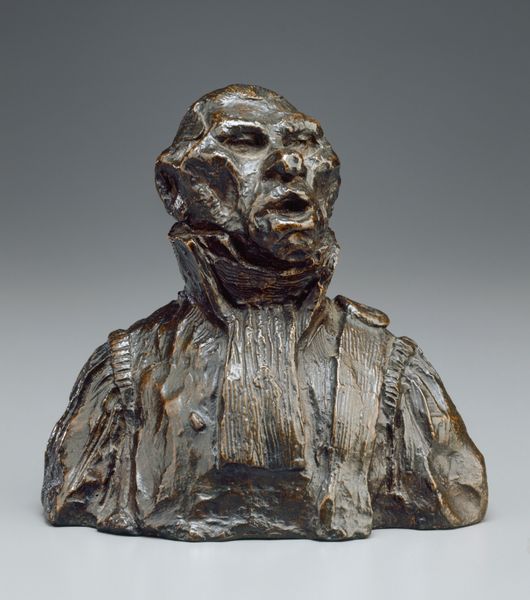
bronze, sculpture
#
portrait
#
neoclacissism
#
sculpture
#
bronze
#
sculpture
#
men
#
history-painting
#
decorative-art
#
profile
Dimensions: Height: 27 5/8 in. (70.2 cm)
Copyright: Public Domain
Editor: Here we have a bronze sculpture of John Paul Jones by Jean-Antoine Houdon, made between 1781 and 1903. It strikes me as very formal, almost austere, which I guess fits the Neoclassical style. What aspects stand out to you in this piece? Curator: The material and its fabrication are most compelling. Bronze casting in the late 18th and early 19th centuries was an intensive, laborious process. Consider the division of labor – from the initial sculpting in clay, the creation of the mold, to the actual pouring and finishing of the bronze. Editor: Right, there would have been several artisans involved. How did that affect the final product? Curator: The bronze itself speaks of wealth and status. Who could afford a bronze bust? And, importantly, who was deemed worthy of being immortalized in such a durable and costly material? Houdon was a celebrated artist with powerful connections, and he secured commissions from elites to create these commemorative effigies. It speaks to a very specific patronage system. Do you see evidence of the hand of the artist anywhere? Editor: I do; look closely and there are smoothing marks visible around his neck. That hand-finishing makes it not just a product of labor but an individual artist's statement, too, right? Curator: Precisely! It represents a fascinating negotiation between individual artistic expression, skilled labor, and the demands of a specific social and economic context. So this bronze bust is more than a portrait. It embodies production. Editor: That changes how I see it completely. It's a document of production and a symbol of social stratification! Curator: Exactly. By focusing on its materiality and context, we gain a richer understanding of its meaning.
Comments
No comments
Be the first to comment and join the conversation on the ultimate creative platform.
